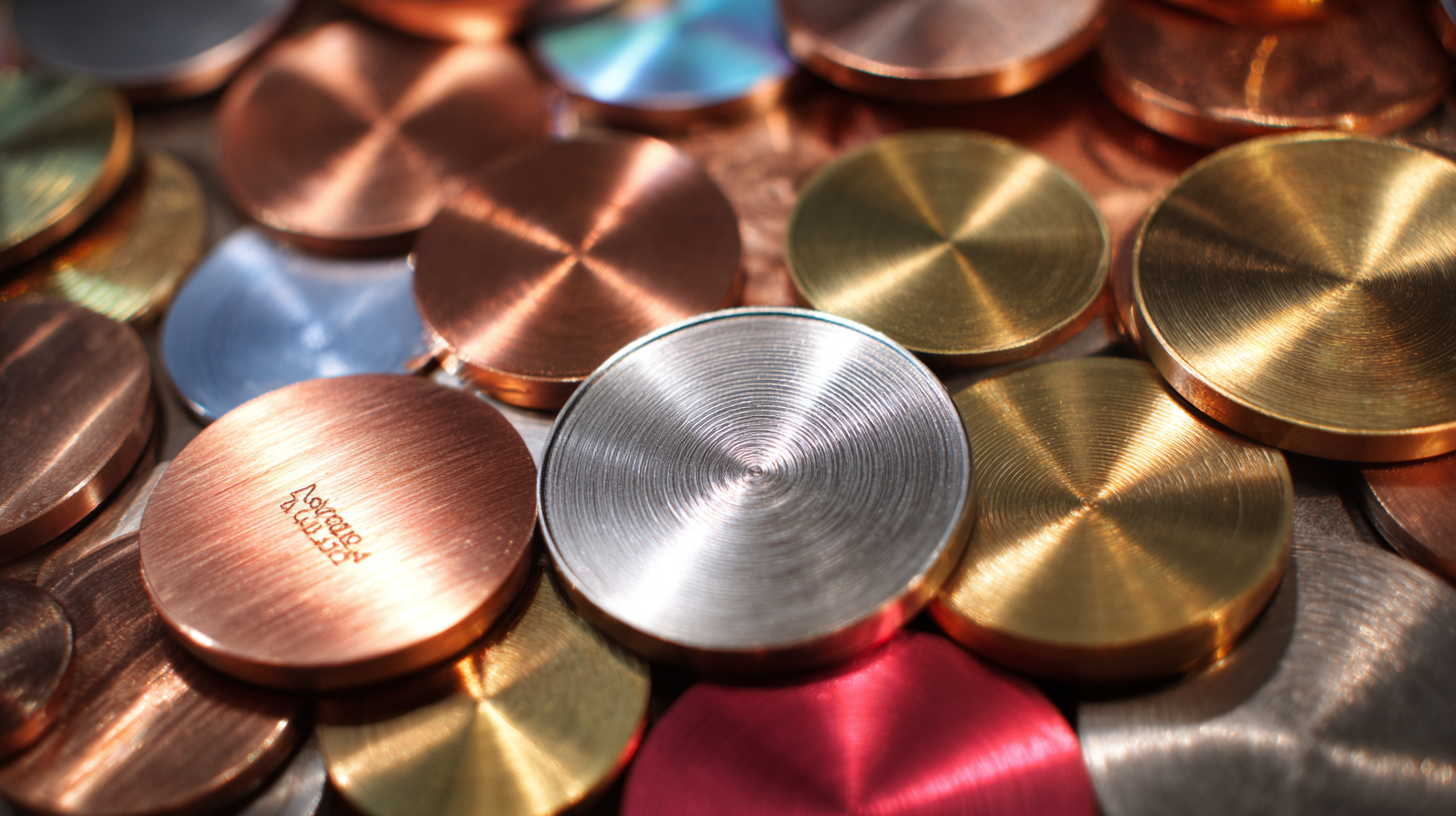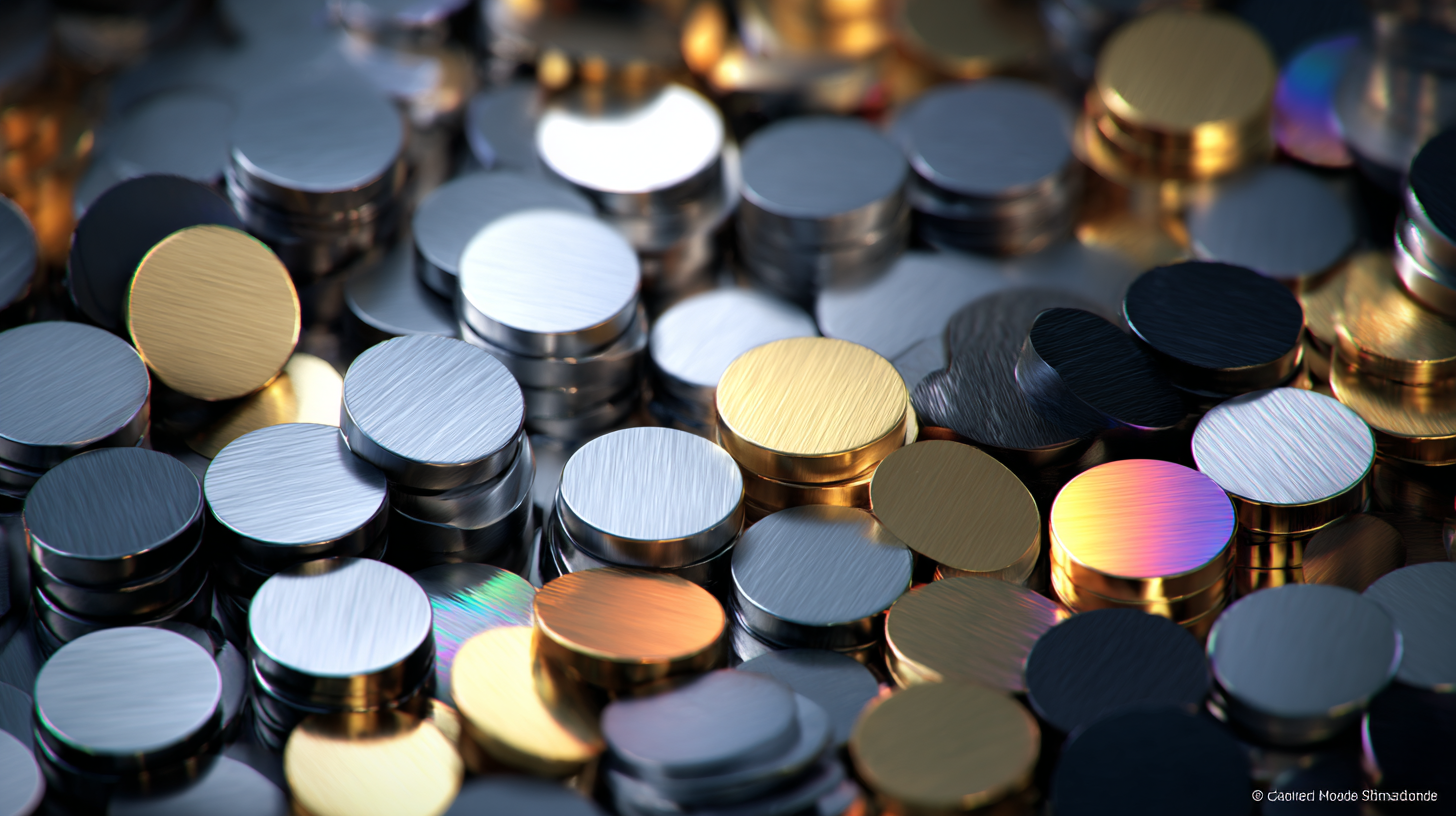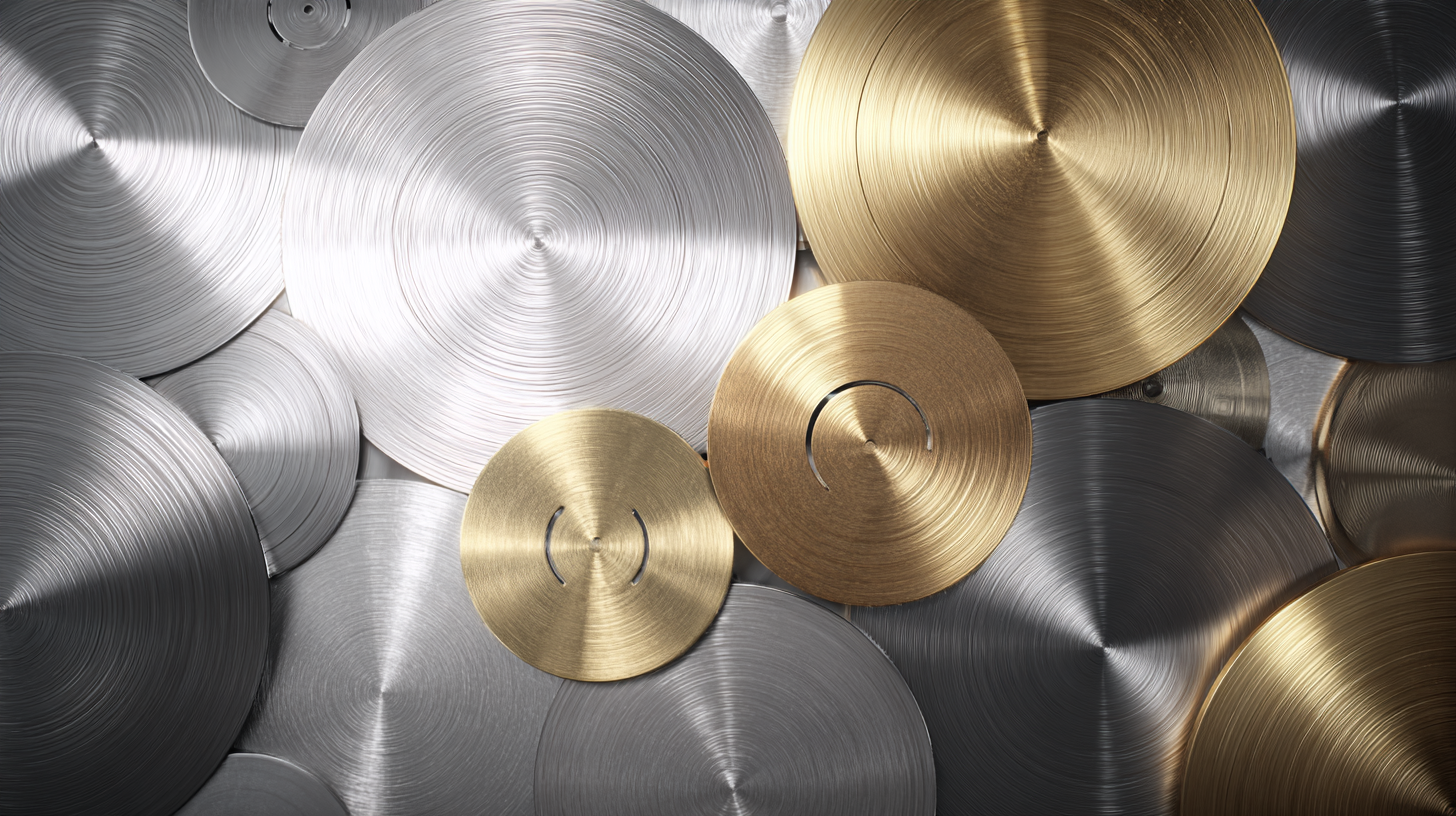When it comes to selecting the ideal thick metal discs for your manufacturing needs, understanding the nuances of material properties and applications is critical. According to a recent report by Grand View Research, the global metal disc market is expected to reach USD 8 billion by 2025, illustrating a strong demand in various industries such as automotive, aerospace, and construction.
 Thick metal discs play a pivotal role in ensuring structural integrity and performance in these sectors. They are not only essential for applications requiring robust durability but also for intricate designs that necessitate precision machining. As the industry evolves, making informed decisions on thickness, material type, and production methods becomes increasingly vital.
This blog will guide you through the key considerations for choosing the best thick metal discs tailored to your specific requirements, supported by industry insights and best practices.
Thick metal discs play a pivotal role in ensuring structural integrity and performance in these sectors. They are not only essential for applications requiring robust durability but also for intricate designs that necessitate precision machining. As the industry evolves, making informed decisions on thickness, material type, and production methods becomes increasingly vital.
This blog will guide you through the key considerations for choosing the best thick metal discs tailored to your specific requirements, supported by industry insights and best practices.
When selecting thick metal discs for your manufacturing needs, there are several factors to consider to ensure optimal performance. First, the material composition is crucial. Various metals offer different strength, durability, and resistance to environmental conditions. For instance, choosing alloys with specific properties can enhance resistance to corrosion and wear, which can be vital based on the application of the discs. Additionally, consider the manufacturing process of the discs. Processes like forging or machining can significantly affect the final product's integrity and usability.
Tips: Always review the specifications of the metal discs to ensure they meet your manufacturing standards. Look for discs that have been tested under conditions similar to your intended application. Also, evaluate the suppliers' reputation and the consistency of their production quality to guarantee reliable performance over time.
Another critical factor is the thickness of the discs. Thicker discs may offer better structural integrity, but they could also be heavier and more challenging to work with. Assess the weight-to-strength ratio of different options, especially in applications where weight plays a crucial role, such as in automotive components. It’s also advisable to factor in any specific environmental concerns, such as exposure to high temperatures or corrosive substances that could impact the choice of discs.
When selecting thick metal discs for manufacturing needs, understanding the material properties of steel, aluminum, and their alloys is crucial. Steel is known for its exceptional strength and durability, making it suitable for applications requiring high load-bearing capacities. According to a report by the World Steel Association, steel's tensile strength ranges from 370 to 1,700 MPa depending on the grade, which allows manufacturers to choose a steel type that meets specific performance standards. This versatility makes it a preferred material in industries like automotive and construction, where structural integrity is paramount.
On the other hand, aluminum and its alloys offer excellent corrosion resistance and are significantly lighter than steel, making them ideal for applications where weight reduction is a priority. According to Aluminium International Today, aluminum's specific strength can exceed that of many steel grades, with some aluminum alloys reaching up to 600 MPa of tensile strength. This property, combined with aluminum's ability to withstand harsh environmental conditions, makes it an excellent choice for aerospace and marine applications. By carefully considering the material properties of steel and aluminum, manufacturers can optimize their product design and improve overall performance.
| Material Type | Density (g/cm³) | Tensile Strength (MPa) | Hardness (Brinell) | Corrosion Resistance | Cost per kg ($) |
|---|---|---|---|---|---|
| Carbon Steel | 7.85 | 400-2000 | 120-200 | Low | 2.00 |
| Stainless Steel | 7.90 | 520-620 | 150-300 | High | 4.50 |
| Aluminum | 2.70 | 70-700 | 30-150 | Medium | 3.00 |
| Aluminum Alloy 6061 | 2.70 | 310-350 | 95 | Medium to High | 3.50 |
| Aluminum Alloy 7075 | 2.81 | 570-620 | 150 | Low | 5.00 |
When evaluating manufacturing processes for optimal thick metal disc production, it’s crucial to consider the specific requirements of your application. Different manufacturing methods can greatly influence the quality, durability, and precision of the final product. For instance, forging and machining are two predominant techniques, each offering unique advantages. Forging is ideal for producing strong, resilient discs, while machining ensures tighter tolerances and smooth finishes, catering to applications requiring high precision.
Another vital factor to weigh is the choice of materials. Selecting the right metal alloy can enhance performance characteristics such as hardness, corrosion resistance, and thermal stability. Additionally, understanding how each manufacturing process interacts with these materials can lead to more informed decisions. For example, certain alloys can be more suited to machining, whereas others may perform better under forging due to their ductility and malleability. By carefully assessing both the manufacturing methods and material selections, manufacturers can optimize their production processes, resulting in high-quality thick metal discs tailored to specific needs.

As we look towards 2025, the demand for thick metal discs is projected to increase significantly, influenced by emerging market trends and technological advancements. Industries such as automotive, aerospace, and renewable energy are driving this growth as they seek high-quality materials to meet evolving production standards. The global push towards sustainable manufacturing practices is also a crucial factor, with firms increasingly focusing on materials that enhance efficiency and reduce environmental impact.
In particular, the rise of electric vehicles and advancements in green steel production are expected to elevate the demand for thick metal discs. This trend is evident in the projected growth of related markets, such as iron ore pellets and ring rolling products, which highlights a broader shift in manufacturing priorities. By 2035, these market expansions underscore the importance of selecting the right materials, which will be essential for future-ready manufacturing processes. As industries adapt to these changes, choosing the best thick metal discs tailored to specific needs will be pivotal in maintaining a competitive edge.

Sustainability is a pressing concern in the manufacturing of thick metal discs, particularly in light of the environmental challenges posed by industrial processes. As industries ramp up production, the impact on heavy metal pollution becomes increasingly evident. With the rise of cement production and the corresponding increase in air and soil contaminants, it is crucial for manufacturers to adopt more sustainable practices. Using eco-friendly materials and energy-efficient processes can significantly mitigate the pollution levels associated with the production of thick metal discs.
Moreover, the recycling of electronic waste presents a unique opportunity to address heavy metal contamination while supporting sustainability in manufacturing. Electronic waste often contains valuable metals that can be repurposed for new products, reducing the need for virgin materials. Implementing bioremediation strategies, utilizing microbes and plants to cleanse contaminated sites, can further enhance sustainable practices within the industry. By focusing on innovative approaches, manufacturers not only comply with environmental regulations but also contribute to a healthier planet.
